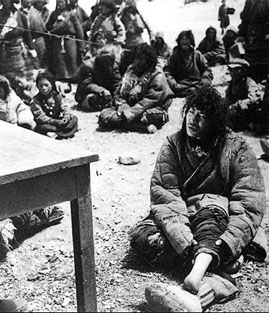Theocracy has lost its root in Tibet -experts
Updated: 2008-04-11 20:57
At a ritual in India in January 2007, he again ordered people not to worship Dorjee Shugden, denounced its believers as spies of the Chinese government and asked his followers to make black-or-white decision between him and Dorjee Shugden.
 |
Observers said the Dalai Lama was using religion to suppress his political rivals and achieve political targets.
While Tibetan people were working hard to improve their hometowns, the Dalai Lama and his supporters harassed the Chinese border with foreign anti-China forces in the 1960s and fanned violent incidents in the 1980s. Last month, the violence claimed 19 innocent lives in Lhasa.
"Tibet is not paradise. It faces challenges and difficulties during its development," said Bi Hua, a CTRC expert. "But people know who are showing the real sense of responsibility to Tibet."
"Tibet has made great progress in the past decades," added 60-something Tenzin Ganpa, another CTRC senior researcher and a native of Lhasa.
Common people are provided with improving public services in education, health care, pension and housing while enjoying a higher living standard, he said.
|
||
|
||
|
|
|
|

